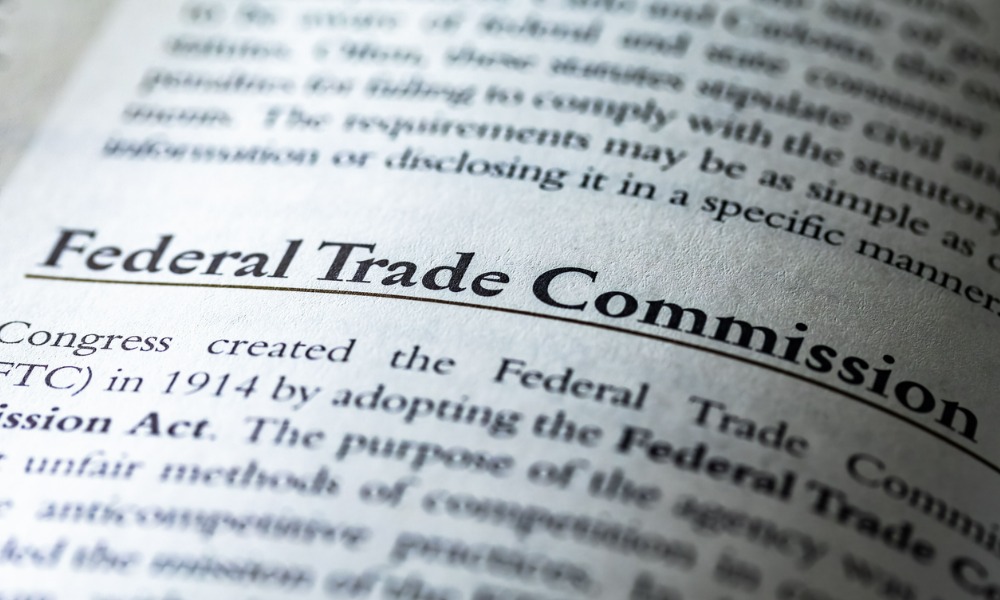FTC non-compete agreement ban goes ‘too far’

FTC non-compete agreement ban goes ‘too far’ | Insurance Business America
Insurance News
FTC non-compete agreement ban goes ‘too far’
Lawyer slams ambiguities in FTC non-compete proposals, predicts changes
Insurance News
By
Jen Frost
The Federal Trade Commission (FTC) proposed ban on non-compete agreements remains in places ambiguous, with anticipated sweeping changes “unnecessary”, a lawyer who works with both plaintiffs and defendants on restricted covenant issues told Insurance Business.
“Frankly, my view is that this rule, as drafted, goes a little bit too far,” said Florida-based Hill Ward Henderson shareholder Gregory Brown. “The notion that we need a rule that bars non-competes in their entirety to protect low-level employees kind of misses the mark.”
The FTC’s non-compete agreement ban, proposed in January, is intended to abolish non-compete agreement use aside from in exceptional circumstances. The move is meant to boost Americans’ earnings by up to $250 billion and $296 billion per year and get rid of the “unfair” practice that sees workers disinclined or unable to move jobs, according to the FTC.
FTC non-compete agreements – lawyer flags by ambiguity, target concerns
However, Brown, said that in nearly 30 years of working with clients on non-compete legal issues, lower-level employees, which he identified as a support target of the FTC changes, are “often not asked to sign them”.
“Even when they do, the law really wouldn’t support having a low-level person who’s not client facing prevented from moving to a competitor,” Brown said. “That’s sort of the stated basis for getting rid of these things, but in practice we’re not seeing those types of claims, and therefore the rule that’s proposed seems unnecessary.”
For Brown, the FTC non-compete rule proposals are somewhat “ambiguous” where it comes to non-solicitation agreements, something that raises further questions. This is pronounced where it comes to salespeople, a frequent target of restricted covenants. The FTC has previously said that non-solicitation agreements will not be barred unless these were seen to be “unusually broad in scope”.
“What we often find ourselves arguing over – [an employer] will say, well we can’t really prevent this salesperson from going to work for a competitor,” Brown said. “What we want to do is keep them from soliciting the customers who they had a relationship with when they worked for the prior employer.
“What ends up happening is you’re enforcing a non-solicitation, as opposed to a non-compete, and so in my view the rule is fairly ambiguous when it comes to non-solicitations and what employers can and cannot do.”
What is a non-compete agreement?
The FTC defines a non-compete agreement as:
A non-compete agreement is a contractual term barring an employee or former employee from starting a competing business or working for a competing employer, according to the FTC.
Non-compete agreements typically involve geographic and/or time restrictions
Approximately 30 million people in America are bound by non-compete agreements, the FTC has said
When will FTC non-compete agreement changes take place?
A vote is unlikely to take place on the new FTC non-compete agreement rules until April 2024, Bloomberg Law has reported. In the interim, Brown said he hoped for greater clarity on non-solicitation.
“We could be waiting a while before we actually see what the rule is,” he said. “I suspect that as a result of the substantial comments on either side, [there] are going to be some significant changes made to the rule.”
While Brown predicted changes to the mooted rules, he warned that employers – including insurance brokers, who are part of an industry known for “heavy litigation” around competition and staff moves – are likely to need to be a “lot more careful” around the contracts they get employees to sign, and may be forced to limit restrictions, such as geographical scope and the length of time a non-compete agreement applies.
Do you have thoughts on the FTC non-compete agreement rules? Leave a comment below.
Related Stories
Keep up with the latest news and events
Join our mailing list, it’s free!






